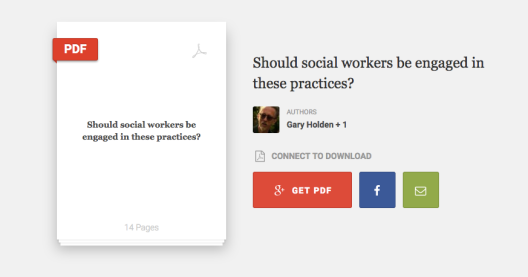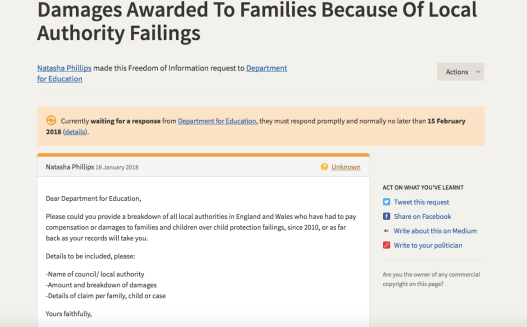A new and very interesting piece of research spanning 15 years, looks at the social work profession from a skills angle and asks whether social workers are routinely going beyond their professional borders.
The paper was published on 5th January, 2018 in the Journal of Evidence Informed Social Work. Entitled, “Should social workers be engaged in these practices?” it was written by Gary Holden, Professor at the New York University Silver School of Social Work, and Kathleen Barker, Professor of Psychology at the City University of New York.
Outlined in the article are a list of jobs social workers seem to be carrying out as part of their social work role, or carrying with them as previously acquired skills. The authors tell us:
“Some of the entries…. are specific interventions, some indicate previous training of the provider (e.g., certifications or degrees), some specify offers of training for others, others are guiding philosophies or conceptualizations and still others refer to equipment.”
The list of skills and courses involved seem to be heavily skewed towards holistic disciplines, as well as religious and spiritual ones like rebirthing, Feng Shui and herbology. A significant number of entries for counselling and therapy can be seen, as well as some medical courses and qualifications.
Holden and Barker say the list they have compiled is unfinished and raw, but urge us to think about how the profession is evolving and whether it is staying true to its original mission:

As the professors point out, the definition and boundaries of social work are a little fuzzy, which we can see for ourselves in England and Wales with our own definition of social work, which is presented as a global one:
“The following definition was approved by the IFSW General Meeting and the IASSW General Assembly in July 2014:
Social work is a practice-based profession and an academic discipline that promotes social change and development, social cohesion, and the empowerment and liberation of people. Principles of social justice, human rights, collective responsibility and respect for diversities are central to social work. Underpinned by theories of social work, social sciences, humanities and indigenous knowledge, social work engages people and structures to address life challenges and enhance wellbeing.
The above definition may be amplified at national and/or regional levels.”
The BASW’s Advice Note on the roles and responsibilities of social workers is also worth a read.
Ultimately, the researchers want us to think about whether this kind of mission creep is actually a good thing for the social work profession, allowing greater knowledge and by implication better support for vulnerable individuals, or whether the skills presented are not really effective ones for the purposes of helping those in need and building strong communities.
The professors, and Researching Reform would love to know what you think.














